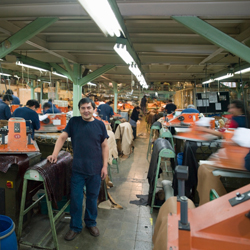Enhancing the competitive edge of the EU textile industry
The European textile industry has faced difficulties in recent years due to legislation aimed at reducing the environmental impact of textile processing. At the same time, intense competition from developing countries has led to an increase in imports from low-cost labour countries with fewer environmental regulations. European investigators sought to enhance the quality of EU textiles while reducing environmental impact, thus restoring a competitive edge. They set out to develop a dye monitoring-and-control tool via funding of the ‘Development of a clean and efficient automatic dyeing control system’ (EDY) project. Scientists developed a variable optical path spectrometer (VOPS) providing reliable on-line and real-time data regarding dye bath elemental composition and colours, pH, conductivity and temperature. Together with an adaptive control loop, the system was capable of modifying control based on continuous real-time feedback. Previous monitoring systems generally provided information about dye bath parameters analysed after the process was completed. Such systems did not facilitate real-time changes for optimal process conditions. Being economic, the EDY system enabled improved textile product quality with less waste of materials and time. The end result was higher production rates with lower environmental and financial costs. Overall, EDY has the potential to significantly enhance the competitiveness of the European textile industry that has suffered recently due to strict environmental legislation and cheap labour in other countries. In particular, small and medium-sized enterprises (SMEs) in the textile sector should benefit greatly from the EDY system’s reduced costs and ready compliance with regulations.




